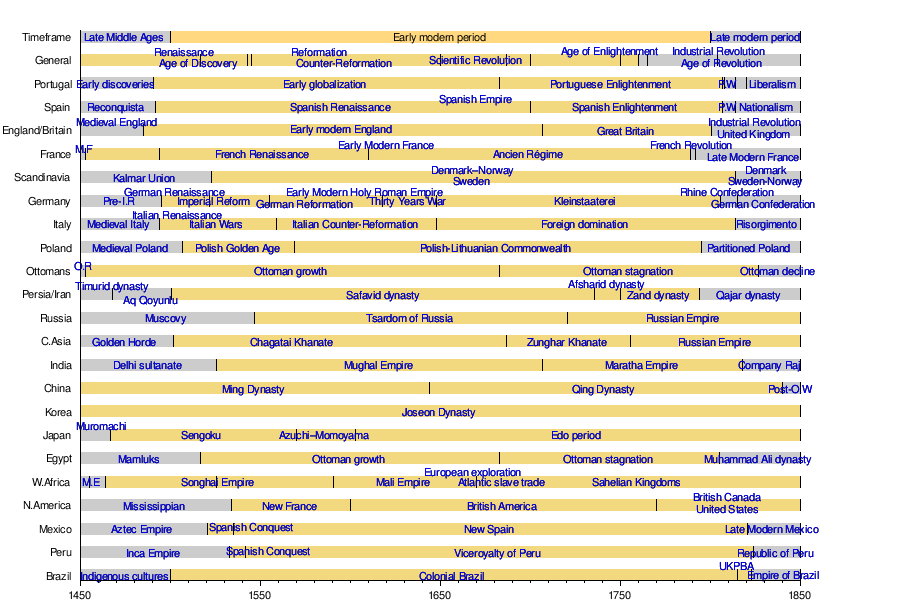The Renaissance and the Enlightenment were significant periods in European history. The Renaissance, occurring from the 14th to 17th centuries, was a revival of classical culture, and it marked the rise of humanism. On the other hand, the Enlightenment, which originated in the 18th century, focused on reason, science, and empirical evidence, leading to a new way of thinking about the world. Both periods had cultural, intellectual, and social impacts on Europe, and shaped modern Western culture, including significant advances in science, technology, and art.
The Renaissance vs. The Enlightenment: Comparing Two Important Periods in European History
Introduction
The Renaissance and the Enlightenment were two of the most important periods in European history. Both of these periods witnessed significant changes in the cultural, intellectual, and social life of Europe. This article aims to compare and contrast these two epochs in terms of their historical, cultural, and intellectual significance.
Background and Historical Context
The Renaissance was a period of cultural and intellectual revival that occurred in Europe between the 14th and 17th centuries. It originated in Italy and was characterized by the rediscovery of classical literature, art, and philosophy. The Renaissance was also marked by the rise of humanism, a philosophical and cultural movement that emphasized the importance of human reason, experience, and individualism.
The Enlightenment, on the other hand, was a cultural and intellectual movement that originated in Europe in the 18th century. The Enlightenment was characterized by a focus on reason, science, and empirical evidence. Enlightenment thinkers believed that reason could be used to solve social and political problems and improve the human condition. The Enlightenment was also marked by a rise in critical thinking and skepticism toward traditional authorities, including religious institutions.
Cultural and Intellectual Significance
The Renaissance was a period of great cultural and intellectual significance. It helped to shape modern Western culture by reviving interest in classical literature, art, and philosophy. The Renaissance also marked the beginning of the scientific revolution, which led to significant advances in astronomy, physics, and mathematics. The Renaissance was also a time of great artistic achievement, with masterpieces by artists such as Leonardo da Vinci, Michelangelo, and Raphael.
The Enlightenment also had a significant cultural and intellectual impact on Europe. It helped to create a new way of thinking about the world that emphasized reason, science, and individualism. The Enlightenment also led to the development of democratic and liberal ideas that would shape the modern world. Enlightenment thinkers such as Jean-Jacques Rousseau and John Locke were influential in shaping the modern concepts of individual rights and social contract theory.
Social and Political Context
The Renaissance occurred during a time of great social and political upheaval in Europe. The Black Death, a widespread plague, had killed millions of people, and there were frequent wars and conflicts between states. The Renaissance was also marked by the rise of powerful city-states such as Florence and Venice, which competed with each other for power and influence.
The Enlightenment, on the other hand, occurred during a time of relative peace and stability in Europe. The Scientific Revolution had led to significant advances in technology and medicine, and there were fewer wars and conflicts between states. The Enlightenment was also marked by the rise of powerful monarchies such as France and England, which competed with each other for power and influence.
Conclusion
In conclusion, the Renaissance and the Enlightenment were two of the most important periods in European history. The Renaissance was characterized by a revival of classical culture and the rise of humanism, while the Enlightenment was marked by a focus on reason, science, and individualism. Both of these epochs had significant cultural, intellectual, and social impacts on Europe and helped to shape modern Western culture.
